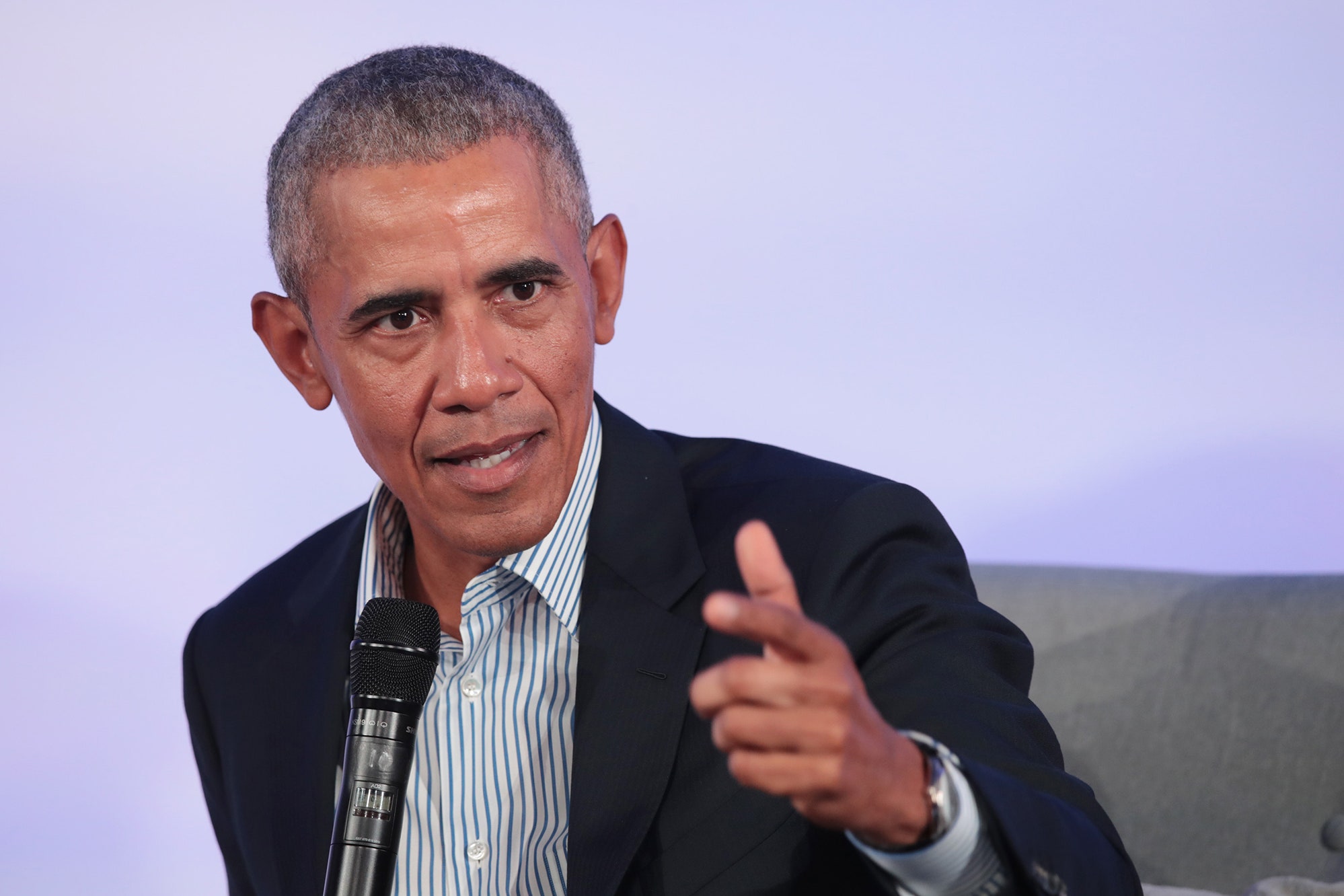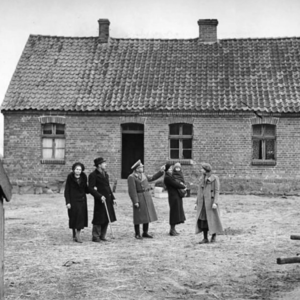As Trump remains silent on the racial injustice being protested across the country, Obama and other former Commanders-in-Chief are condemning systemic racism and pushing for change.
ormer President Barack Obama addressed the nation Wednesday, offering solace to a country wrenched by turmoil over the killing of George Floyd and the systemic racial injustice that his death has nakedly exposed. Voicing support for the families who have lost loved ones to police brutality and the protesters who have shown up across the country to speak out against Floyd’s death, Obama struck a sober yet hopeful tone, expressing optimism that the outpouring of rage and support for racial justice will help bring about lasting change. “In some ways, as tragic as these past few weeks have been, as difficult and scary and uncertain as they’ve been, they’ve also been an incredible opportunity for people to be awakened to some of these underlying trends [of America’s systemic racism],” Obama said in his speech, which was part of an online town hall hosted by his foundation’s My Brother’s Keeper Alliance. “They offer an opportunity for us to all work together to tackle them, to take them on, to change America and make it live up to its highest ideals.”
Obama pointed to the prevalence of young people taking part in the protests as a positive sign, as well as a coalition of protesters that’s markedly more diverse than those marching during the Civil Rights era. “When sometimes I feel despair, I just see what’s happening with young people all across the country and the talent and the voice and the sophistication that they’re displaying, and it makes me feel optimistic,” Obama said. “It makes me feel as if this country is going to get better.” The first black president of the United States also spoke directly to young Americans of color, telling them: “I want you to know that you matter.” “I want you to know that your lives matter, that your dreams matter,” Obama said. “You should be able to learn and make mistakes and live a life of joy without having to worry about what’s going to happen when you walk to the store or go for a jog or are driving down the street or looking at some birds in a park.”
“I hope that you also feel hopeful, even as you may feel angry, because you have the power to make things better and you have helped to make the entire country feel as if this is something that’s got to change,” the former president continued. “You’ve communicated a sense of urgency that is as powerful and as transformative as anything that I’ve seen in recent years.”
Obama threw his support behind the ongoing protests, emphasizing during a subsequent online roundtable that “this country was founded on protest—it is called the American Revolution.” But he also pointed to more concrete ways to use politics and policy to bring about change. The former president urged every mayor in America and local officials to put evidence-based police reforms in place, and touted the importance of cities adopting the My Brother’s Keeper initiative. “I’ve been hearing a little bit of chatter in the internet about voting versus protest, politics and participation versus civil disobedience and direct action. This is not an either/or, this is a both/and,” Obama said. “To bring about real change, we both have to highlight a problem and make people in power uncomfortable, but we also have to translate that into practical solutions and laws that can be implemented and we can monitor and make sure we’re following up on.”
The 44th president was not the only onetime Commander-in-Chief to speak out in response to Floyd’s killing and the widespread grief and unrest it has inspired. All the living former presidents have come out with statements denouncing America’s racial injustice, calling on the nation to use this moment as the catalyst for a more just and equal future. “We need to see each other as equally deserving of life, liberty, respect, dignity, and the presumption of innocence,” former President Bill Clinton said in a statement, while former President Jimmy Carter said Wednesday that “people of power, privilege, and moral conscience must stand up and say ‘no more’ to a racially discriminatory police and justice system, immoral economic disparities between whites and blacks, and government actions that undermine our unified democracy.” “We are responsible for creating a world of peace and equality for ourselves and future generations,” Carter said. “We need a government as good as its people, and we are better than this.”
Even former President George W. Bush, a Republican whose administration’s poor response to Hurricane Katrina disproportionately affected black Americans and was widely regarded as racist, said that the ongoing police killing and threatening of black men is a “shocking failure” that begs the question: “How do we end systemic racism in our country?” In his statement, Bush called for the need to take “bold action” through “consistent, courageous, and creative effort[s],” while acknowledging the structural flaws in America’s justice system that currently stand in the way of true equality. “We know that lasting justice will only come by peaceful means. Looting is not liberation, and destruction is not progress,” Bush said. “But we also know that lasting peace in our communities requires truly equal justice. The rule of law ultimately depends on the fairness and legitimacy of the legal system. And achieving justice for all is the duty of all.”
The presidential statements all stand in stark contrast to the current occupant of the White House, who has largely ignored the scourge of racial injustice in his attempt to respond to the chaos and unrest spurred by Floyd’s killing. Other than some brief comments in support of Floyd and claiming on Twitter that he’s “done more for the Black Community than any President since Abraham Lincoln,” President Donald Trump has ignored the racial strife and injustice at the root of Floyd’s killing and the widespread protests. Instead of pushing for equality and unity, the president—who has a long history of racism—has instead stoked division, pushing the use of force and advocating pitting the U.S. military against American citizens in an attempt to craft his image as a “law and order” president. Unlike his predecessors, Trump has shown no interest in bringing the country together to strive for a more just and equal future—and his divisive approach to the racial unrest has even former members of his Cabinet publicly speaking out. “Donald Trump is the first president in my lifetime who does not try to unite the American people—does not even pretend to try,” Trump’s former Secretary of Defense James Mattis wrote Wednesday in a statement to the Atlantic. “Instead, he tries to divide us.”




